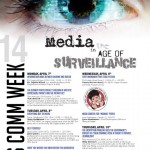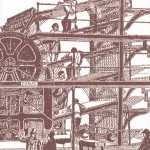‘Provocation’ in Ferguson, Charlie Hebdo to be featured during Mass Communications Week 2015
Mass Communications Week of 2015 will feature various panel discussions and include community leaders, media and activists to speak on incidents that arose in Ferguson, Ukraine and France this past year.
Mass Communication Week 2015 starts today and ends Friday to provoke discussion on recent topics pertinent to the media. Image courtesy of Ibroscheva.
A panel discussion titled […]












